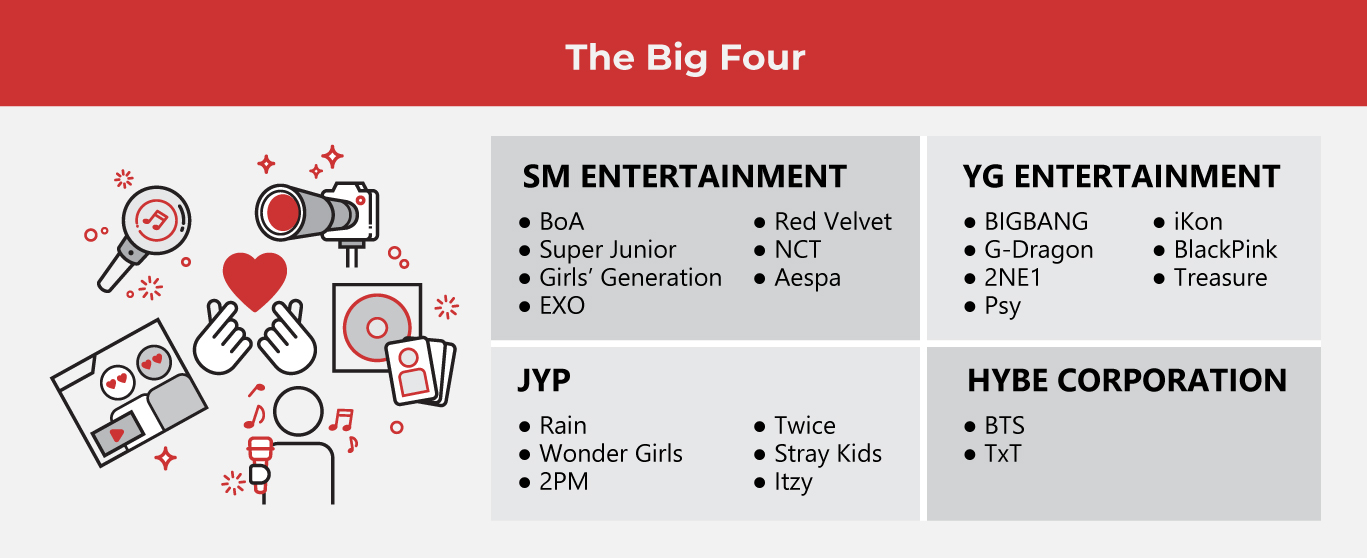What Fandom Looks Like in the Future

In the beginning of K-pop, only a handful of music fans outside of South Korea made the effort to access the music, and other media released by Korean entertainment companies. Today, K-pop is an entertainment force to be reckoned with, thanks to the internet.
During the late 1990s and the early 2000s, K-pop was dominated by The Big Three—SM Entertainment, JYP, and YG Entertainment. Each company had its own “flagship” music groups with their own distinct, sound, style, attitude, and loyal legions of fans.

From its modest days as a fringe fandom, K-pop has now become serious business.
Outside of South Korea, only the most truly ardent of music fans would make the effort to access K-pop media with dial-up internet accounts. Today, K-pop is consumed all over the world, with fans spanning the entire Asian continent, across America, and Europe. And it’s all thanks to the internet, internet culture, social media, and streaming video.
(Also read: The New Era of Live Music)
K-pop Through the Generations
Because K-pop has grown significantly over the last twenty years, many fans have come to identify particular “generations” (“gen”) within the fandom. In 2023, K-pop is in its fifth gen, but let’s take a brief trip back in time.
First gen K-pop covered the late 90s to early 2000s: the era of dial-up, message boards, and pixelated, un-subtitled videos. The second gen opened up K-pop somewhat to the rest of the world, with bigger groups such as BIGBANG playing sold-out shows in the U.S. while remaining a fringe fandom. Third generation birthed the most successful K-pop group existing today, BTS.
By the time the fourth gen rolled around, and more and more fans outside Korea were consuming everything K-pop and being talked about on social media sites Tumblr, Twitter, and Reddit, the K-pop industry realized the massive potential to reach out to audiences outside of their native country.
The app VLive was developed. Owned by South Korean telco giant Naver, VLive was launched in 2015, a video streaming app dedicated to idol-generated and idol-related content, which includes everything from concerts to short videos. It was acquired in late 2022 by the WeVerse Company, a subsidiary of Hybe Corporation, the home of BTS.
The Rise of Hybe and WeVerse
Hybe Corporation, the media company formerly known as Big Hit Productions was founded by Bang Si Hyuk. It debuted BTS in 2013 and struck K-pop gold. What was known as The Big Three in the K-pop industry is now The Big Four, with Hybe surpassing the success of SM Entertainment, JYP, and YG.
BTS, the seven-member boyband has achieved awards, accolades, and global recognition unprecedented in the world of K-pop. It could be argued that it’s thanks to Hybe marching to the beat of its own drum within the Korean music industry that broke the K-pop idol mold.
Where the Big Three groups were more stringent and very controlling with official content their groups released—whether this be on the idols’ personal social media pages, group activities on TV or online, and album releases, Hybe went the other direction—being aggressive with BTS content made available online. Thanks to their ever-active online presence, the group’s influence grew beyond anyone’s wildest dreams. As reported by Music Business Worldwide, Hybe’s revenue surpassed the $1B for the second consecutive year in 2022.
Demand for the group generated more online content, and soon, demand for content subtitled in English grew as well. As the popularity of the band grew globally, new media platforms were being introduced, and ready to be maximized. Physical merchandise expanded with the demand for digital merchandise—exclusive online access to events such as fan-meets and concerts were hot ticket items along with a plethora of new practical merch fans can throw their hard-earned money towards.
WeVerse has become Hybe’s arm for digital platforms and customer service. Taking fandom into the future with the experience it promises its fans, it has taken a digital platform to the next level. To call it a digital hub may not even begin to describe it— a combination of streaming service, social media, and e-commerce, WeVerse is a vast, deep, and complex universe built by its parent company and kept alive by millions of fans all over the world.
So where does Hybe leave the other Big Three? SM Entertainment’s Lee Soo Man, a visionary in the industry, conceptualized futuristic concepts for many of his groups, creating an alternate universe he calls Kwangya where all of SME’s groups exist. Envisioned as a “large-scale metaverse”, Kwangya has been referenced in songs by SME groups such as Red Velvet and Aespa. Its vision of the future of K-pop remains abstract and conceptual, a dream world of what K-pop could be, replete with digital twins, AI, and NFTs.
Meanwhile, both YG and JYP continue to concentrate on what they do best: create and produce pop music that the world can enjoy. While not breaking any new ground in terms of platforms and innovations, both entertainment companies are consistent in putting out quality groups that make great music.
Bringing the music, the experience of being at a live concert, and even interacting with the idols themselves has never felt as intimate and personal. Being as close to them as virtually as possible has brought fandom to the future, and WeVerse has unlocked an entire universe for fans to safely explore, have fun, and just be.
As one of the Top 19 EMS companies in the world, IMI has over 40 years of experience in providing electronics manufacturing and technology solutions.
We are ready to support your business on a global scale.
Our proven technical expertise, worldwide reach, and vast experience in high-growth and emerging markets make us the ideal global manufacturing solutions partner.
Let's work together to build our future today.
Other Blog




